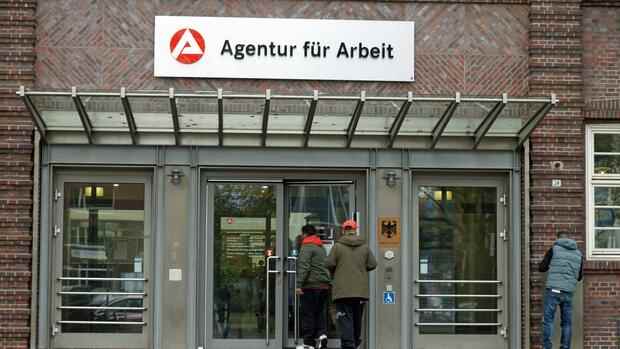The citizen income reform is intended to replace Hartz IV.
(Photo: imago images / Eckhard Stengel)
Berlin The basic income reform pushed by the traffic light coalition was initially rejected in the Bundesrat.
The federal states in which the Union co-governs abstained in the decisive vote on Monday. Bavaria voted against the proposal. The proposal did not achieve the necessary majority of 35 votes in the special session of the Federal Council.
>> Read here: Where there is a problem with citizen’s income – and how to proceed
Now the Mediation Committee will deal with the proposed legislation, a body with representatives from the Bundestag and Bundesrat. The Basic Law provides for this process in the event that the Bundestag and Bundesrat cannot reach an agreement. Time is short: the Federal Council will next meet regularly on November 25th.
Top jobs of the day
Find the best jobs now and
be notified by email.
“I very much regret that the core of the law has fallen out of focus: many people do not come out of the transfer system because we do not focus enough on qualification and further training,” said Mecklenburg-Western Pomerania’s Prime Minister Manuela Schwesig (SPD) in the run-up to the vote. In addition, the increase in standard rates has long been necessary.
The SPD prime minister, Manuela Schwesig, campaigned for citizen income in the Bundesrat on Monday.
(Photo: IMAGO/Christian Spicker)
The Baden-Württemberg Economics Minister Nicole Hoffmeister-Kraut (CDU) criticized the reform – and praised the previous Hartz IV principles. The standard rates would have to rise significantly, that is undisputed. “‘Promoting and demanding’ means that only those who really need help are helped,” said Hoffmeister-Kraut, criticizing the higher allowances for asset allocation and new upper limits for apartment sizes. Nevertheless, a compromise should be sought in the mediation committee.
Minister of Labor Hubertus Heil (SPD) once again urged the Federal Council to promote citizen income. It’s about “protection and opportunities”, especially in view of the hundreds of thousands of people who are still long-term unemployed. He announced that the federal government would now call the mediation committee. He is confident that the law can come into force on January 1st despite the delay.
>> Read the portrait of Labor Minister Hubertus Heil here: The lawyer for those left behind is fighting for his welfare state reform
The Bundestag passed the law last week with the coalition majority of the SPD, Greens and FDP. However, the Bundesrat must also agree.
More: Federal Employment Agency can form reserves again
